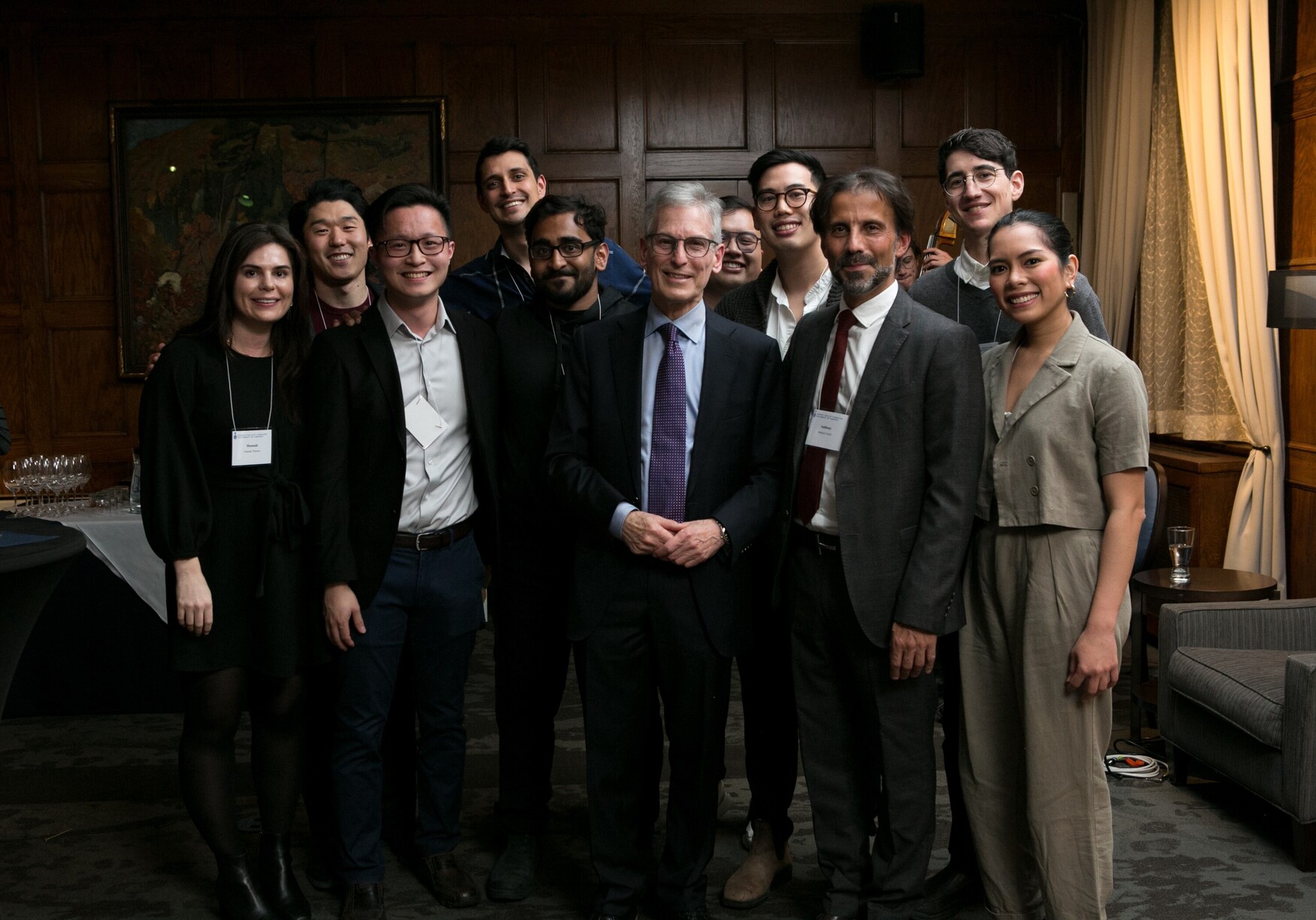Main Second Level Navigation
Jan 12, 2023
Improving Quality of Life: New Endowed Chair in Functional Urology
Research, Faculty & Staff, Giving

Dewey Chang
Drs. Sender Herschorn and Tony Finelli with fellows and residents of U of T’s Division of Urology celebrating the establishment of the new Sender Herschorn Chair in Functional Urology


